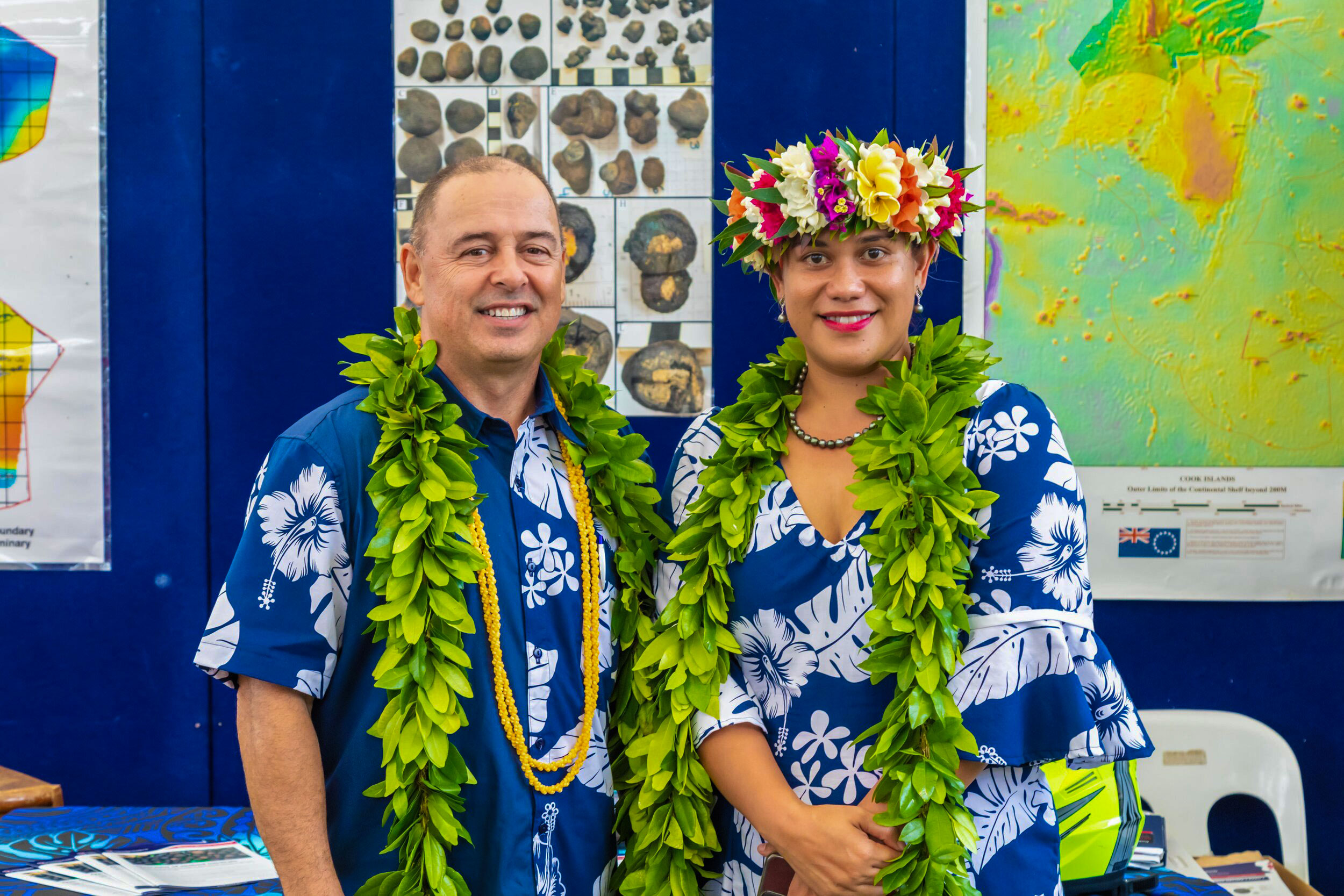Seabed regulations: Public input ends, future updates planned
Monday 18 December 2023 | Written by Losirene Lacanivalu | Published in Economy, Environment, National, Parliament

Prime Minister, Mark Brown, and Alex Herman, commissioner of the SBMA, photographed at an event held to celebrate the launch of the licensing application process in October 2020. Photo courtesy of SBMA/23121711
Cook Islands concludes public consultation for seabed mineral exploration guidelines, while the Prime Minister emphasises exploration’s potential for future prosperity and responsible resource extraction. Losirene Lacanivalu reports.
Public consultation for the Tranche 2A Standards and Guidelines under the Seabed Minerals Authority (SBMA) ended last week.
However, Seabed Minerals Commissioner Alex Herman said they could look at extending the consultation period if reasonably requested by a stakeholder who intends to provide feedback.
Otherwise, Herman said: “We accept feedback at any time on our regulatory framework that we will incorporate into future updates and reviews.”
Herman explained that Standards and Guidelines assist the Authority and the National Environment Service (NES), as regulators, to monitor licence holder performance, and to ensure that licence holders comply with the terms and conditions of their licence, environmental approvals and relevant Cook Islands legislation.
She said the Tranche 2a Guidelines follow the Tranche 1 Standards and Guidelines that were publicly reviewed in July.
“While tranche 1 mostly dealt with the exploration phase, tranche 2 mostly deals with the studies phase and there will be a tranche 2b for minerals harvesting activities in the future. Some of Tranche 1 and all of Tranche 2 are jointly developed between SBMA and NES,” Herman said.
“As with all of these standards and guidelines we look at our laws and best practices around the world (including from the International Seabed Authority). Standards set out requirements. Guidelines aim to help stakeholders and licence holders through recommendations.”
Herman said Tranche 2a guidelines look at the environmental impact assessment process for seabed minerals development and the various studies associated with that.
“In their drafting we started with the process set out in the Environmental (Seabed Minerals) Regulations 2023 (Regulations). Then we developed guidance to help carry out those processes. It is important to remember that the Regulations need to be followed completely.
“So far this set of Tranche 2a guidelines have been through external subject matter expert review and is now going through public review.”
Herman said they were yet to compile public feedback and would normally wait until the end of the feedback period for that.
Meanwhile, in Parliament last week, Prime Minister Mark Brown reiterated the country has been involved in exploring seabed minerals as a potential future source of prosperity.
Last year, the government approved three seabed minerals (SBM) exploration licence applications from CIC Limited, CIIC Seabed Resources Limited and Moana Minerals Limited.
Brown said: “In this second year of exploration there has been growing interest internationally on the shift towards renewable energy and the need for critical metals which are contained in our seabed minerals.”
“We are at a point in time in the world, where there is a convergence of interests in countries procuring critical metals for renewable energy and looking at ways to diversify that supply away from current sources. At the moment critical metals that are being looked after, those sources are controlled by China as companies that own many of these mines, in particular for cobalt, the supply comes out of the Democratic Republic of Congo.”
Brown said the main driving factor behind the exploration is the need for these companies to demonstrate the protection of the ocean and means in which the nodules can be harvested in a way that does not damage the ocean.
“So our very strong reliance on good sound science and evidence based decision making following the rule of law particularly the UN Convention on the law of the sea, these are all the principles that we adhere to in our seabed minerals sector.












































